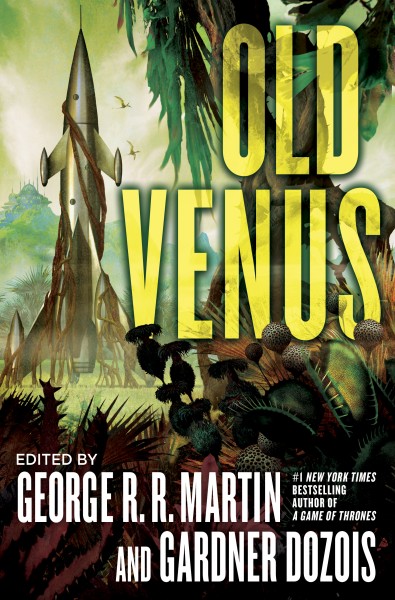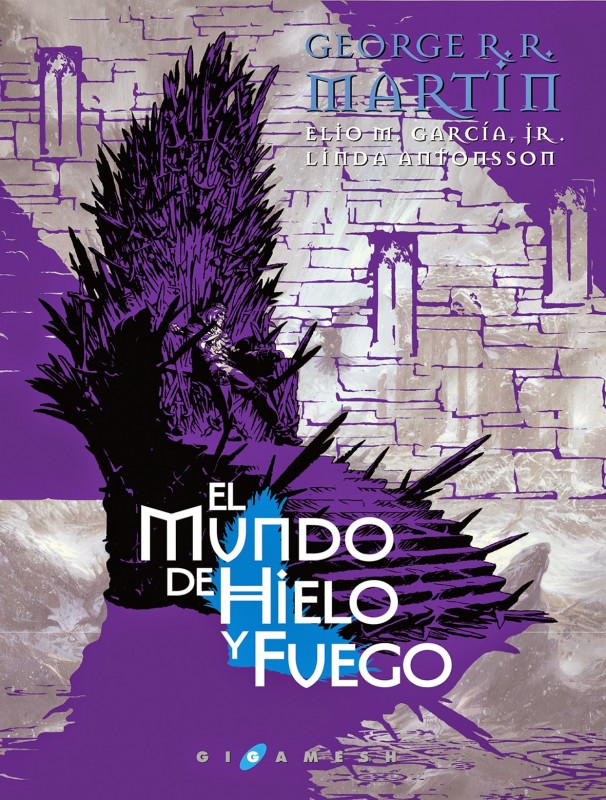
The Sad Puppies and their supporters have argued that they are not the first to campaign for awards in our (not so) little genre.
They’re right about that, of course.
I’ve been around a long time. So has campaigning, by one means or another.
The Nebulas were even more vulnerable to this than the Hugos, because the pool of voters is so much smaller. Once upon a time, you could see the log-rolling clearly, because the Nebula Awards Reports published the names of the members recommending a story beside the recommendation. You only had to look at the latest NAR to note, “oh, Bill has nominated Ted, and Ted and nominated Bill, and both of them have nominated Alice,” or, “hmmmm, gee, all these guys from Alabama, they’re in the same writer’s group and they are all nominating each other.”
Thing is, though, it didn’t really hurt. It all balanced out. And besides, it might have been above board. It’s only human for friends to read the work of friends and be predisposed to like it. Maybe there was vote-swapping going on and maybe there wasn’t. No way to prove it. It did bother me, however, when a certain segment of the membership demanded that the NAR stop listing the names. I suspect the same thing went on as before, only now it was hidden from sight.
(Oh, and lest I be accused of hypocrisy, my own stories were often recommended during those years, and sometimes by friends. And sometimes I recommended their stories. As I said, it’s normal and human to read and enjoy the work of people you know and like).
If the campaigning had ended there, it might have been fine. But things got worse. One year, there was a certain well regarded new writer who had a big novella in one of the magazines. He had never done a book before… but a major publisher had just signed him to a multi-book contract that would include his first novel. Well, the magazine and the book publisher got together for a mass “for your consideration” mailing. The magazine supplied copies, the book publisher mailed them out, and every member of SFWA got a copy of his novella. Needless to say, he won the Nebula in a walk… and when that first novel came out, it had NEBULA AWARD WINNER proudly displayed across its covers.
Only one writer has ever refused a Nebula. That was my friend and sometime collaborator Lisa Tuttle, who won the 1982 Nebula for her story “The Bone Flute,” and declined it… to protest the rising tide of Nebula campaigning. I love Lisa and I love her writing, but I said then and I say now, that was an odd decision. After all, it wasn’t Lisa who’d been campaigning. In fact, her story had WON over the guy who did the campaign (he had mailed out copies of his own story to the Nebula voters). Last I heard, Lisa’s Nebula was in David Hartwell’s house, serving as a bookend. She still doesn’t want it. I wish I could say that her grand gesture did some good, and shamed the members of SFWA to stop campaigning… but alas, nothing of the sort.
And what about the Hugos, you ask?
Yeah, there too. In the ongoing discussion of Puppygate, numerous people have cited one instance, wherein a stack of identical nominating ballots arrived with the same postmark, paid for by consecutive money orders. Those were disallowed. In 1987, members of the Church of Scientology campaigned successfully to place L. Ron Hubbard’s BLACK GENESIS on the Best Novel ballot. That was not disallowed — the Scientologists had done nothing illegal, after all, all they’d done is buy supporting memberships to a convention that they had no intention of attending, for the sole purpose of nominating LRH for a Hugo (hmmm, why does that tactic sound familiar?) — but their campaign created a huge backlash. Hubbard’s name was booed lustily at the Hugo ceremony in Brighton, and his book finished last in the final balloting, behind No Award. (The winner that year was Orson Scott Card, with SPEAKER FOR THE DEAD, for those who are counting).
Of course, there were also recommended reading lists. That wasn’t campaigning, not strictly, but certain lists could have huge influence on the final ballot. The annual LOCUS Recommended Reading List, compiled by Charles Brown and his staff and reviewers, was the most influential. If your book or story made that list… well, it did not guarantee you a place on the ballot, but it sure improved your chances. NESFA (the New England fan club) had an annual list as well, and LASFS might have done the same, not sure. And of course the Nebulas, which came before the Hugos, carried a lot of weight too. Win a Nebula, and the chances were good that you’d be a Hugo nominee as well. Again, no guarantee, some years the shortlists diverged sharply… but more often than not, there was a lot of overlap.
So there were always these factors in play. Cliques, I can hear the Sad Puppies saying. Yeah, maybe. Thing is, they were COMPETING cliques. The NESFA list and the Nebula list were not the same, and the LOCUS list… the LOCUS list was always very long. Five spots on the Hugo ballot, and LOCUS would recommend twenty books, or thirty… sometimes more, when they started putting SF and fantasy in separate categories.
Bottom line, lots of people influenced the Hugos (or tried to), but no one ever successfully controlled the Hugos.
That became even more true when we entered the age of the internet. Suddenly blogs and bulletin boards and listservs were everywhere, and there were DOZENS of people drawing up recommended reading lists and suggesting books and writers and stories. Sweet chaos. It was glorious. So many people talking about books, arguing about books, reading books.
That was also when the practice of writers blogging about their own eligible books and stories took root. “Say, the Hugo nominations are coming up, and I had a few things out last year. Hey, check them out.” Some people were deeply offended by this practice. (Some still are. Check out the blogs of Peter Watts and Adam Roberts on the subject, for instance). Others, especially newer writers and those hungry for attention, seized on it at once as a way of getting their name out there. Publishers and editors began to encourage it. Publicity and advertising budgets being what they were (non-existent in many cases), new writers and midlist writers soon realized that if they did not publicize their books, no one would.
And once it really got rolling, there was no stopping it. “Everyone else is doing it,” you heard writers say. “I have to do it, in self-defense.” They were not wrong. Sometimes the difference between making the Hugo ballot and falling short is a single vote. The writer who refused to self-promote and then fell a few votes short… ouch.
[And yes, I have done all this myself. Mentioned my own work, drawn up recommended reading lists, blogged passionately about people I thought deserved a nomination. I am not condemning the practice, just reporting on it. It always made me feel awkward, but like many of my friends, I knew that if I refrained and then missed the ballot by a few votes, I would be kicking myself. I’d sooner see the practice die out. But until it does, you have to play the game.]
Of course, not everyone was equally good at self-promotion. Certain subfandoms were better organized than others (the DOCTOR WHO fans, for instance). Certain writers were more skilled at social media than others, and built up huge personal followings on Twitter and Facebook, or through their blogs… numbers that soon translated to multiple Hugo nominations.
And that was pretty much where we stood, until the Sad Puppies came along.
I have very mixed feelings about campaigning for awards. Part of me agrees with my friend Lisa Tuttle. Wouldn’t it be great if each reader could make his own nominations, without being influenced by slates or lists or mass mailings? It would also be great if all the children of the world could get together and sing in perfect harmony, but that’s not going to happen either. Like it or not, campaigning is here to stay.
I can see where this is going. I am a Worldcon member and a SFWA member, but I am also a member of the Writer’s Guild of America and the Academy of Television Arts and Sciences, which means I vote on the WGA awards and the Emmys… and so the flood comes in, DVDs and Blu-Rays and screeners and links to lockboxes, all full of TV shows and movies “for my consideration.” Way too many to watch. Way too many to count. Are there studios and directors and networks that don’t play the game, that don’t send out screeners and run ads in VARIETY and THE HOLLYWOOD REPORTER. Sure there are. They are easy to recognize. They’re the studios and directors and networks who don’t win any awards.
Once you let the genie out of the bottle, he doesn’t go back in.
The Sad Puppies did not invent Hugo campaigning, by any means. But they escalated it, just as that magazine/publisher partnership did way back when. They turned it up to eleven. Their slate was more effective that anyone could ever have dreamed, so effective that they drowned out pretty much all the other voices. They ran the best organized, most focused, and most effective awards campaign in the history of our genre, and showed everyone else how it’s done.
The lesson will be learned. The Sad Puppies have already announced that they intend to do it again next year. Which means that other factions in fandom will have to do it as well. Just as happened with the “let me tell you about my eligible works,” the rest of the field is going to need to field slates of their own in self-defense.
I don’t look forward to that. It cheapens the Hugos. Will future winners actually be the best books or stories? Or only the books and stories that ran the best campaigns?
Can all the king’s horses and all the king’s men put the Hugos back together again?
I don’t see how. And that makes me sadder than all those puppies put together.







